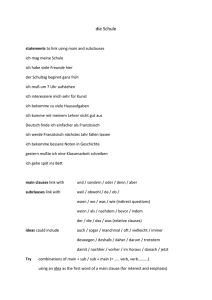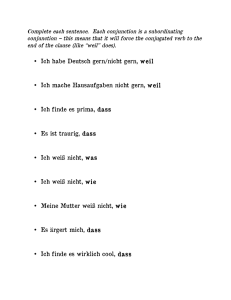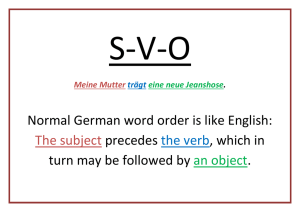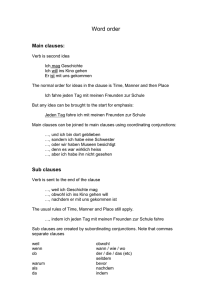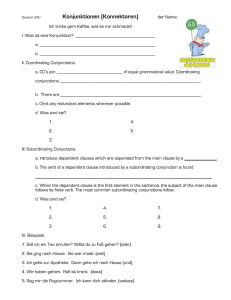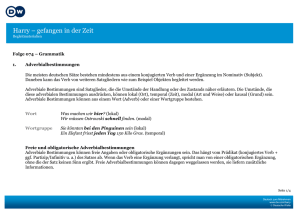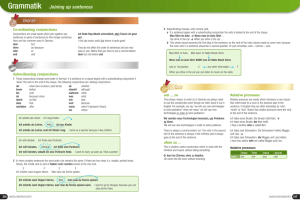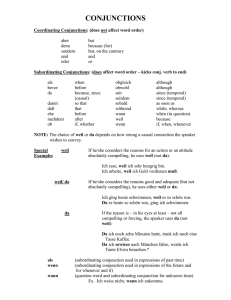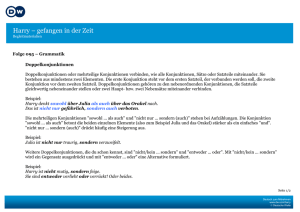Harry – gefangen in der Zeit - deutsch lernen | dw.com
Werbung
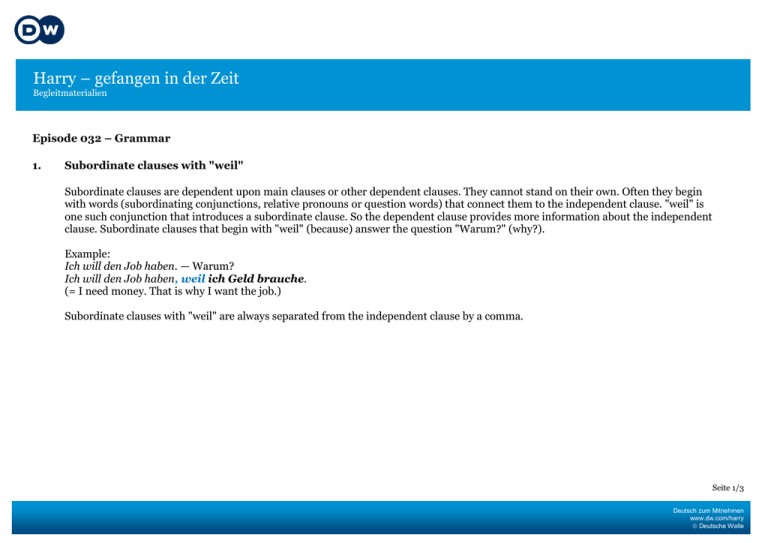
Harry – gefangen in der Zeit Begleitmaterialien Episode 032 – Grammar 1. Subordinate clauses with "weil" Subordinate clauses are dependent upon main clauses or other dependent clauses. They cannot stand on their own. Often they begin with words (subordinating conjunctions, relative pronouns or question words) that connect them to the independent clause. "weil" is one such conjunction that introduces a subordinate clause. So the dependent clause provides more information about the independent clause. Subordinate clauses that begin with "weil" (because) answer the question "Warum?" (why?). Example: Ich will den Job haben. — Warum? Ich will den Job haben, weil ich Geld brauche. (= I need money. That is why I want the job.) Subordinate clauses with "weil" are always separated from the independent clause by a comma. Seite 1/3 Deutsch zum Mitnehmen www.dw.com/harry Deutsche Welle Harry – gefangen in der Zeit Begleitmaterialien 2. Word order in subordinate clauses The verb in a clause that begins with a subordinating conjunction always moves to the end. The other parts of the clause keep their positions. No conjunction: Coordinating conjunction: Ich will den Job haben. Ich will den Job haben und Ich brauche Geld. ich brauche Geld. Independent and subordinate clauses: Ich will den Job haben, weil ich Geld brauche. The short form: Clauses that begin with a subordinating conjunction can sometimes stand on their own in spoken language. But that only works in situations in which the context is clear: Question: Reply: Warum wollen Sie den Job haben? Weil ich das Geld brauche. More: If a subordinate clause that begins with a subordinating conjunction has not only a conjugated verb, but also another (unconjugated) verb form, such as the infinitive or a participle, then this second verb form precedes the conjugated verb in the second-to-last position. Seite 2/3 Deutsch zum Mitnehmen www.dw.com/harry Deutsche Welle Harry – gefangen in der Zeit Begleitmaterialien Perfect tense with helping verb and participle: Example: Harry stinkt. Er hat sich lange nicht gewaschen. Harry stinkt, weil er sich lange nicht gewaschen hat. Modal verb plus the infinitive: Example: Harry bekommt den Job. Er will kein Geld haben. Harry bekommt den Job, weil er kein Geld haben will. For separable verbs, the prefix stays attached to the verb: Example: Sie freut sich. Sie freut sich, Ich komme morgen wieder. weil ich morgen wiederkomme. Seite 3/3 Deutsch zum Mitnehmen www.dw.com/harry Deutsche Welle
